As an action researcher, I observe and listen before I ever talk. I want to make sure I understand your framework or approach, the ethics and values you are using. Once I understand your thinking I’m going to use data, as well personal testimony, so you can’t refute anything I’m saying. I’m not going to call you out. I’m calling you in.
— Brittany Lewis
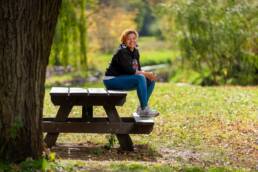
Being Honest About My Story
I am a 2020 Bush Fellow. I applied three times. It was a painful process for me, but it has been therapeutic. The first two times I applied, I had the hardest time talking about myself. This time I was finally able to be honest about my own story. In my job I hold space for a lot of other people. There are so many things I have had to face that community work, activism, and action research allowed me to neglect. This work will make you forget why you got into it sometimes. You end up doing a lot of labor, emotional and otherwise, and forgetting about yourself.
Parents Who Sought Opportunity Outside of the City
My mother was a nurse and my father a truck driver. My mother’s goal in life was to move to opportunity. She came from a large family and took care of her siblings. Growing up without material things, she defined success as connected to what she lacked. For that reason, she wanted to moved us out of the city, to the suburbs. When I was in elementary school, we moved from South Minneapolis to Eagan.
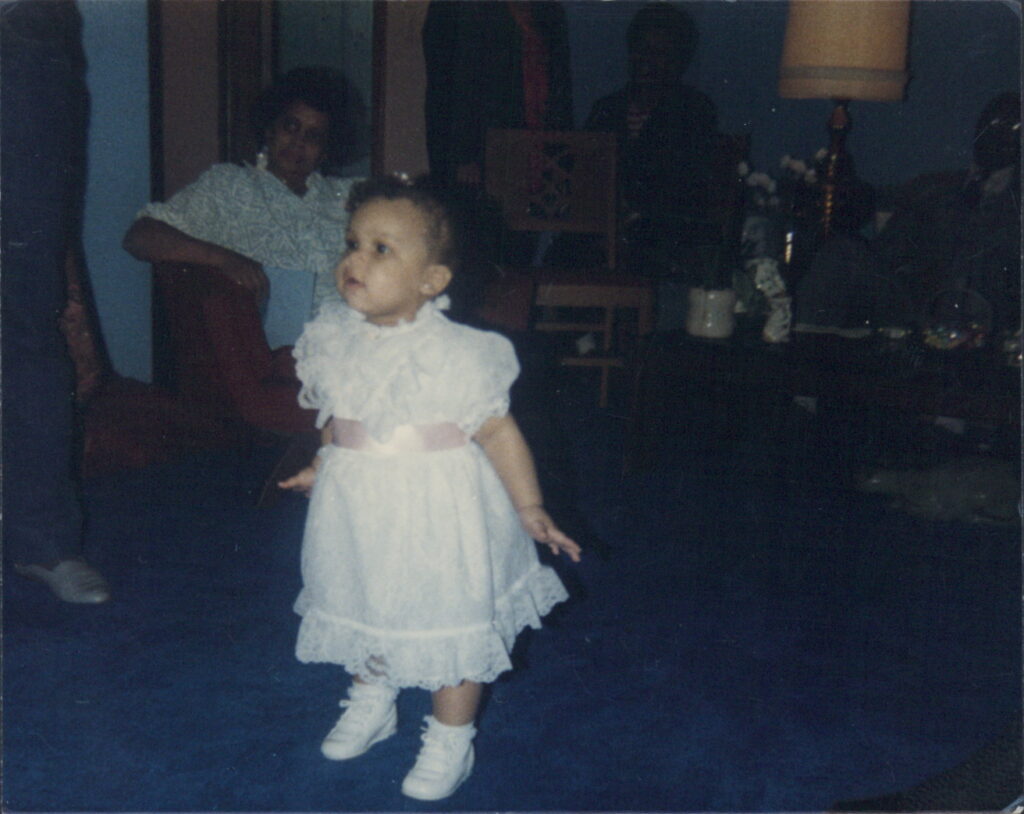
We didn’t last long. My brother, who was in high school at the time, found that the other kids were not welcoming. They egged our garage and spray-painted, “nigger.” We moved out of the suburbs the day I got to school and someone had etched “nigger” on my locker. I walked home and told my parents, “I’m not going back.” We moved back to the city, to the Northside.
My mother’s desire to be closer to resources she never had is not an uncommon story. There are a lot of Black folks who are disillusioned by experiences they had without adequate resources, but leaving those spaces can be more traumatizing to their children.
Not Accepted at Home
My parents discovered when I was in middle school that I was a queer Black girl. I think the politics of moving to opportunity was the same politics that said you can’t have a gay child. You can’t let others know, because we are all performing something. When they found out they dropped me off at the Bridge for Runaway Youth because they didn’t know what to do with me.
That was really scary. I didn’t know what the Bridge was when I was twelve! I didn’t know if they were coming back. When they came back to get me, they began policing me. It was very isolating. Some of the traumas I am trying to process now have to do with that time: feeling abandoned at the Bridge; being policed.
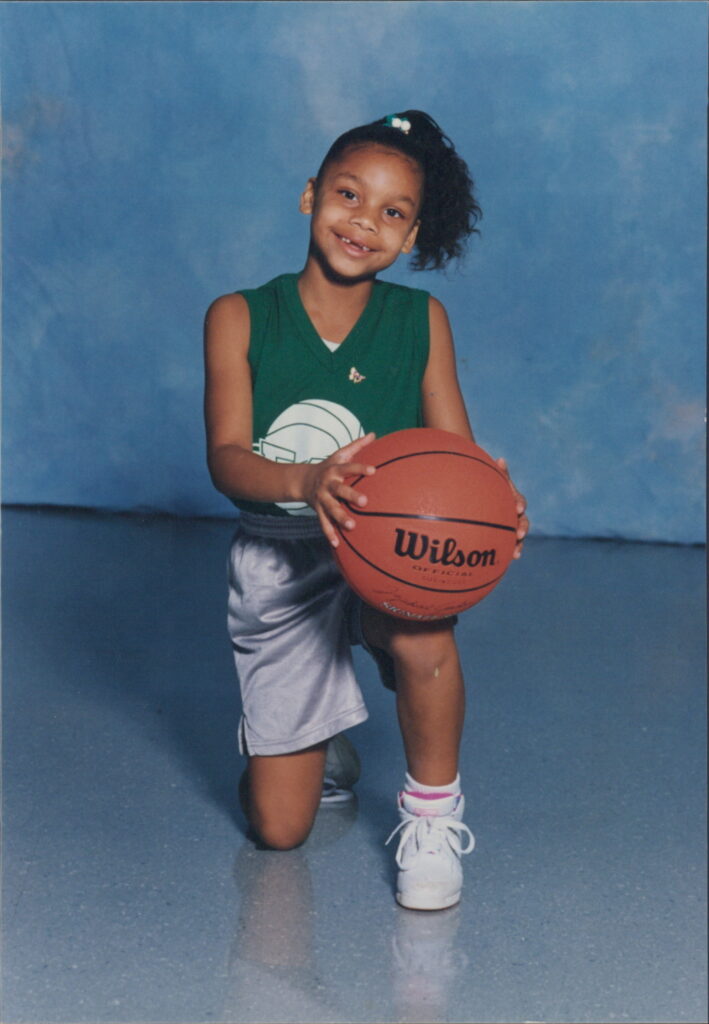
My saving grace—though kind of a double-edge sword—was when my parents began having their own relationship challenges. When their marriage unraveled, I was no longer the focus of their attention. While there was something traumatic about having to witness their fighting, I now had this new freedom.
Finding Family with Other Black Women
I bounced high schools, first to De La Salle on a scholarship until the donor could no longer pay, then to St. Paul Central and finally to Roosevelt. At the end of high school, I was couch hopping. I didn’t have any supervision. I could have gone anywhere. I had my own beat-up car that took me wherever I wanted to go. My parents were too busy working on their deteriorating marriage to care where I was.
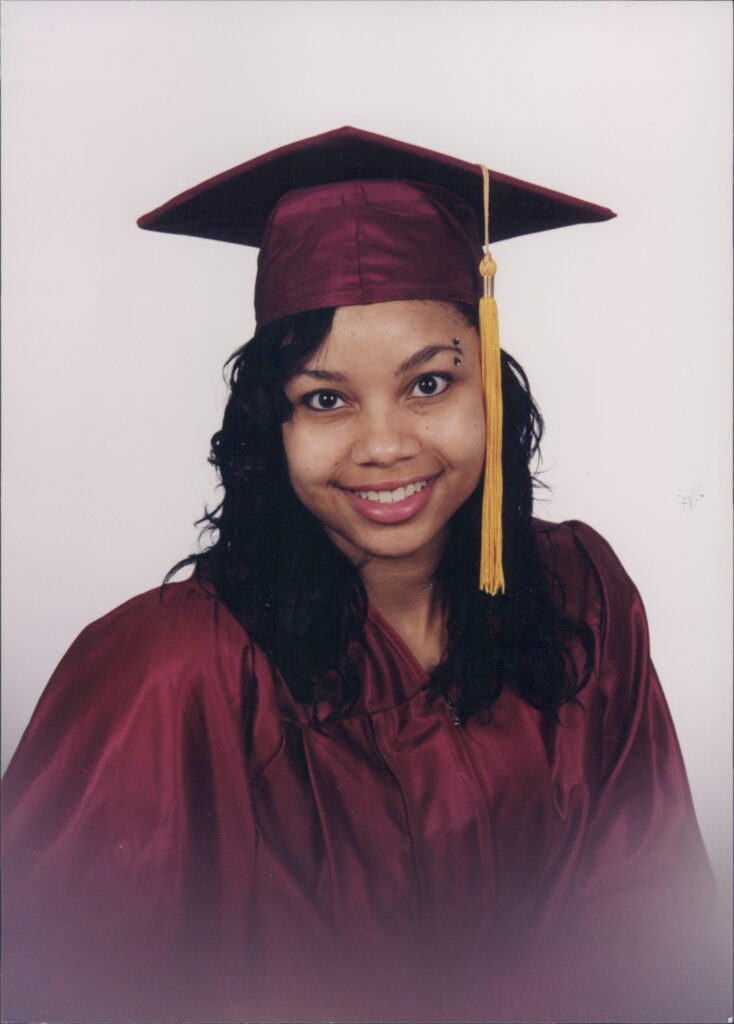
At one point, I moved in with the family of a young woman I was dating. It wasn’t a planned decision; I just didn’t go home. The mother, Miss Dorothy, gave me the love and attention my family was not able to. Her family was so different from mine. In my home everything was very clean and there were places you couldn’t sit. At Miss Dorothy’s you could see through the floor boards; there were mice, roaches, and so much love.
Miss Dorothy never made me go home. The people who have sustained me have always been Black women.
Disconnect Between Lived Experience and Macalester College Canon
There was something really powerful about the love I had experienced from Miss Dorothy’s family. They were so affirming of my identity. They took me on vacations with them. When I ended up going to Macalester taking classes in Urban Politics, it seemed the Black family was always being blamed. I was pretty fired up to say, you know, that is not true. That is not what I had experienced. I began questioning who gets to determine whose knowledge is legitimate.
Although I would later reconcile with my parents, without Miss Dorothy’s love I don’t think I could have made it through college. Years later, I took her out to lunch for her birthday and I asked her, “Why did you let me stay?” Miss Dorothy said, “Brit, before you came around, my daughter [the one I was dating at the time] was rarely going to school and getting into trouble, she couldn’t focus. But you came around and all that changed. She went to school and came home every day and did her homework. You kept her focused. You could have stayed forever….”
I had no idea….
Pursuing the Academy
I got active at Macalester: I was chair of the Black Liberation Action Committee; in Student Government; on the Program Board; brought the University to the community; and disrupted academic spaces. I brought Spike Lee to campus to discuss his film, “When the Levees Broke.”
Trying to figure out what I was passionate about, I struggled. I was reading academic books that made me and my identity seem like the problem. For me, the academic questions I was addressing were personal, yet I was not sharing that.
I went straight from undergrad into a Ph.D. program. I was so passionate, so convicted about my sense of social justice. I was going to be the academic who could really bring Black women and families from the margins to the center of our conversation. I was not ready for what the process was going to be like for me.
I soon learned something about the academy: it does not love you at all. I found many of the classroom settings very hostile. I would get into arguments with my professors. I don’t think they liked me very much. I learned that my grades were on the line and I needed to temper my approach. I got caught up in the notion that there is one way to do something. That is how the Ph.D. process was designed. It wasn’t something I was making up. It is not designed for Black women. The person that taught me that the best was bell hooks.
A Lesson from bell hooks
I was in Puerto Rico for the National Women’s Studies Conference. bell hooks was the keynote that evening. I was at the bar, talking to someone else. I turned around and thought–oh my god—that is bell hooks! She was excited to see my baby Naima, who was nine months old at the time. She asked me my name, my program, etc. She reminisced a bit, saying there was a time when there were no babies or children allowed at these conferences.
I was kinda star-struck. I asked her, “What advice would you give me?”
She said, “I don’t know if you know this, but I don’t have tenure. I never wanted it. Black women are literally dying because of the academy. There are so many women who call me from all over the country. Their mental health, their physical health is failing as they try to reach these academic bench marks not meant for them. Care for yourself.”
Trying the Tenure Track
I didn’t listen. I finished my program and began interviewing across the country. I got two job offers, one in California and the other at Bowdoin, in Maine. Given the cost of living and what they were offering me, the California offer made no sense. I thought I had to move to Maine. Bowdoin is a well-respected institution, and all my mentors were saying, you’d be crazy not to go there.
The week before I left I googled, “Black women, Maine,” and connected with a blog by called “A Black woman in Maine.” I should never have read that blog. She was having a terrible experience raising her children in the whitest state in the union. I called my mentors, crying… but I went.
Center for Urban and Rural Affairs (CURA)
The academy makes you forget so much about why you started in the first place.
I lasted one semester before I quit my job, filed for divorce, and came home. I moved back to the Twin Cities and started a new path. This new path involved a lot: I got into a relationship with someone who identified as trans—who my family totally did not like—and I applied for a non-tenure track position at the Center for Urban and Rural Affairs (CURA) at the Humphrey Institute. It wasn’t two days before my they called and said, we would love to offer you the job.
There hadn’t been a person in this role at CURA for a decade. There was no one to learn from. The only other Ph.D. was the Director. His expertise was heavily quantitatively-based. They needed a qualitative scholar who could lead research projects, so they brought me on to expand the work.
When someone offers you a job, that is the best time to negotiate. I told him I had two requirements. 1. I do not do 9-to-5 water cooler culture. I don’t think that’s healthy. It is not how I’m most creative or productive. 2. I would need CURA to stand on policy recommendations and not be agnostic about what we write, unlike the way most University research institutes function. He accepted my terms.
I had to rebuild the entire large-scale research project division. CURA was known for its community-based partnerships. Graduate students and University of Minnesota faculty members team up with non-profits and local advocacy organizations to provide them with the technical skills they need. CURA realized that would require more in-depth research because people in community were asking questions that were bigger than a semester. Before they hired me, they did not have the capacity to address any of those questions.
One Foot Still on the Tenure Track
I came into CURA not sure if this was what I wanted to do. For the first year I was teaching at Macalester as visiting assistant Professor, one foot in, one foot out, still trying to find a tenured teaching position, but I soon discovered how much I loved research and the policy work I was doing. I also secured a research fellowship at the Minneapolis Federal Reserve Bank. It took me a year to let go and stop applying for teaching positions. There were times that I doubted myself, times when I was deeply concerned about what the path looked like as a single parent. My partner at the time was extremely encouraging.
Research that Centers Community
Low-income communities of color are never in the room when reports are being written about them, or during the design of research studies themselves. The outcomes, therefore, don’t usually favor community. They tend to blame communities for the circumstances they are in. Community engagement strategy matters as much as the data collected. How you build authentic relationships matters.
One part of my job was to decide what projects to take on. When I first got there my boss would send me RFPs—Requests for Proposals—from foundations. I told him we do not want foundations deciding what projects are important. We choose the projects and the vision, in partnership with community. How do we do that? It’s all about relationships.
My job was to build relationships with everyone—judges, city council, community advocates, non-profits, and folks struggling with the re-entry process. Raised on the Northside of Minneapolis, I already had respectful relationships with people I was able to build on.
I set out to find what issues were most pressing to community. Ones that kept coming up were housing and eviction, policing, and the need for bail reform. My job was to figure out who was doing the work in these spaces. Once I had a deeper understanding of the landscape, I pulled key players together, told them what I had learned, how CURA could help and how they could be in partnership with each other to get the work done. All of them said, “Yeah, this is great. We don’t have the capacity to do half of what you just described. We have to work together.”
Evictions in Minneapolis
For our two-year study on evictions we had an advisory council of renters, landlords, development people, county leaders, and government officials. I interviewed 100 people in the 55411 and 55412 zip codes where most of Hennepin County’s evictions come from: 68 tenants and 32 landlords. I taught interviewing skills to the Juxta Youth Action Research Team. When we were doing the interviews one of themes that came up was the dehumanizing application process for those seeking Hennepin County Emergency Assistance. People would start to cry, just talking about it. I was blown away.
That is how action research works. It is iterative. You don’t walk in with a set notion of what you are going to learn. You listen.
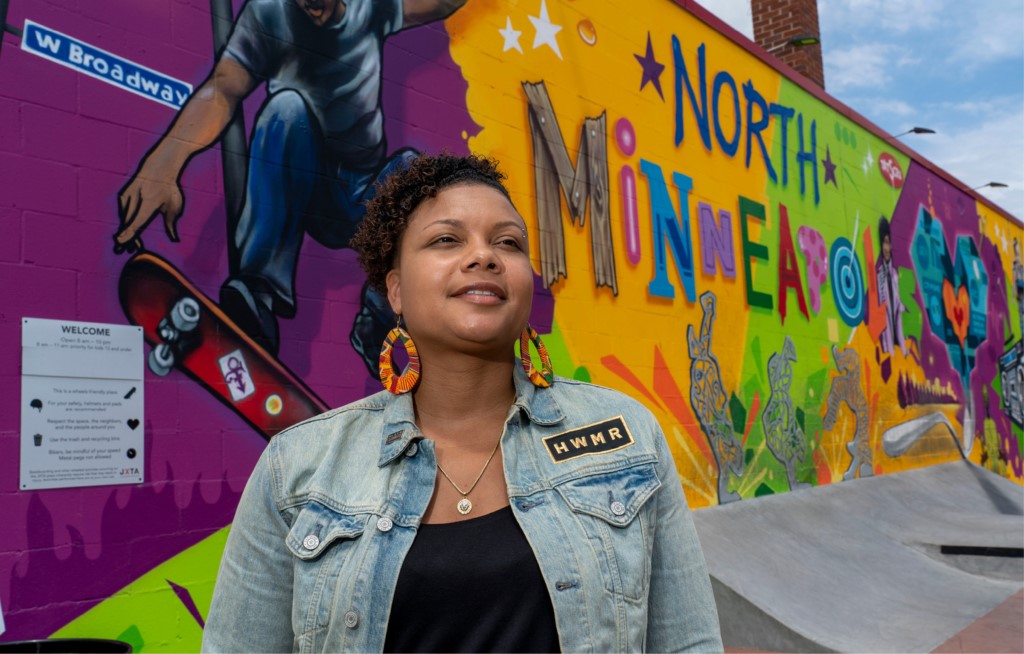
We realized the Hennepin County Emergency process had to change. What people kept saying is they got the runaround. When they were in a state of crisis they were asked to go from one office to another. The Juxta Youth Action Research Team created a simulation of what it looks and feels like to apply for emergency assistance—a physical game. The people who had contracted with the youth realized change was needed. It was an amazing process.
We have one of the fastest eviction processes in the country. It can take two weeks to lose your housing. It could take up to thirty days before you hear from Hennepin County Emergency Assistance if they were going to help you. Our research recommended they change the culture of dehumanization around applying for emergency assistance, speed up the process of getting people assistance, and slow down the evictions process.
I presented those findings the Minnesota State Legislature, but found the committee of mostly landlords to be openly defensive. I also provided our data to a MN Supreme Court Case and we won. I was the only one doing this kind of research, and it wasn’t just the quantitative data, but it was the actual interviews—testimony—that won them over.
Confronting the Policy of Charging People to Stay in Homeless Shelters
I did a series of interviews in my car, particularly with Black women. The only time they had was a lunch break at work. They would get in my car, and the next vehicle over would be her van, full of stuff. She would say, “After I get off of work I’ll go pick up my children, and we are going to sleep in my van. I’m not going to a shelter because you have to pay to stay there.”
I had no idea. I reached out to the county shelters and my team and I met with them all. I wanted to understand this policy. How long has charging people to stay in shelters been going on, and do the shelter providers believe in this practice? I met with the former Director at People Serving People. He said, “I hate it. We have to because it is part of our contract with the County.” I said, “OK, are you interested in working with me to change that?”
I partnered with People Serving People and Hennepin County to design a program that would explore alternatives to the self-pay policy. The Pohlad Foundation funded this work and continues to be a strong partner.
What Action Research Can Do
After CURA’s gentrification and eviction projects, people saw that what we produce is concrete. Much of what was in our report informed the renter policy in the City of Minneapolis. Andrea Jenkins and Jeremiah Ellison consulted with me and they used our report to inform their policy. Another part of our research that the city paid attention to was about the Minneapolis City Code and Enforcement Department. They hired a new inspector and began the work of changing practices that were not in the interest of renters. Our research also led to the creation of the Minneapolis Housing Advisory Committee last year.
Advocating for an Alternative to Call-out Culture
We function in silos. So much is based on how we maintain relationships. I see some leaders out in community who are brilliant minds, but how they show up delegitimizes what they are trying to do. This is something I struggle with in social justice spaces. Yes, we all have our convictions behind our work, but this is relational work. Ostracizing people—what they call call-out culture, or publicly shaming—is not going to work.
I believe in “call-in” culture. You have to lead with love. Leading with love doesn’t mean you have to like everyone. I’m going to be honest with you: I speak with a lot of people I don’t agree with, but they respect me—even if they disagree with me—because of how I engage with them.
I do a lot of observing and listening before I ever talk. I want to make sure I understand your framework or approach, the ethics and values you are using. Once I understand the full extent of your thinking I’m going to use your own words against you. I’m going to use data as well personal testimony so you can’t refute anything I’m saying. Many people will only understand data. You have to use multiple languages to get people out of their own rigid understandings.
I’m not going to call you out. You are going to call yourself out, to see if you are really leading with community at the center or not. I’m calling you in. We are going to have a dialogue and I’m going to allow you to process the data. Together we will ask, what are the problems the data shows and who among us has power to change? What have you tried? Why hasn’t it worked?
That is the strategy conversation. Once you call someone out they become defensive. They don’t want to be at your table, they want to break your table up. That’s not productive for myself or community. Community is why we are here, not our own egos. It’s not about me.
Research in Action
I was out building relationships to the point where most people didn’t know where I worked, they just knew who I was and that they wanted to work with me. I started thinking about what CURA was paying me to do and what requests I was getting from community and doing anyway, because most of us are doing work on top of what we are supposed to be doing. My former partner helped me become aware of this and began asking, “Why not start your own company?” I was hesitant at first. I still had one foot in the academy, was still considering applying for a tenure track position.
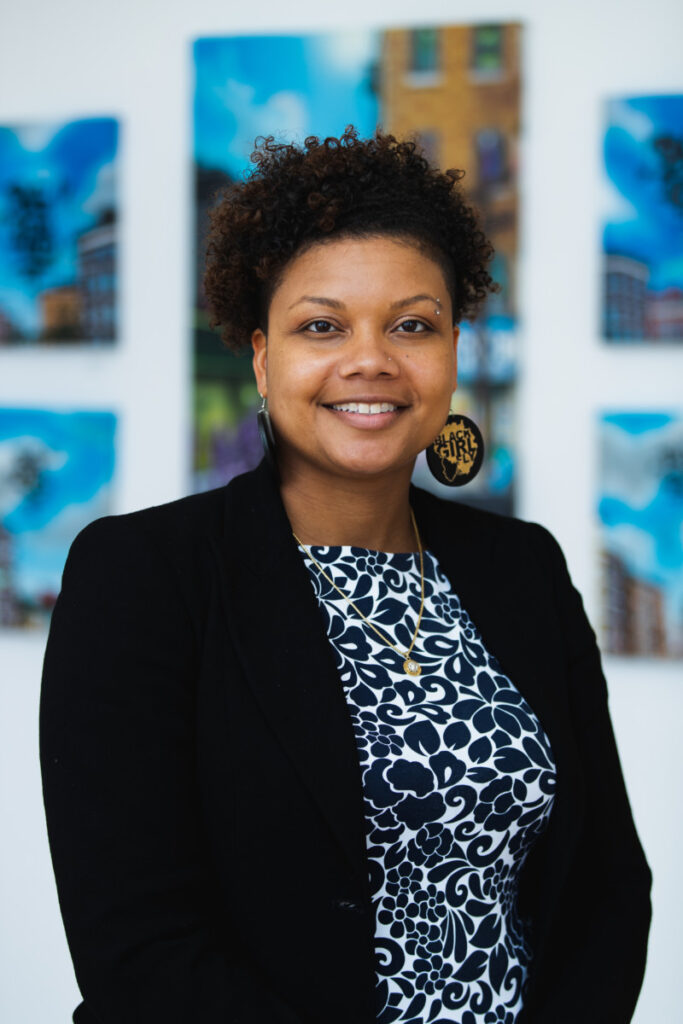
I began Research in Action a year ago. I made my director aware so there wouldn’t be any conflict with CURA. It is doing great. It’s an urban research, community engagement, and racial equity consulting firm. I do everything from evaluation projects to community engagement work, racial equity coaching, as well as action research projects. I work with city government, foundations, non-profits and others. I have my own ethical frames that govern the work that I do. The work has all come by word of mouth, people who respect those values.
A Black Development Company
Three years ago I started a small development company. With my background in housing and urban development I was advocating but not putting my money where my mouth was. There is a lack of small developers of color who are part of the infrastructural development of our communities. Many Black owners went under during the sub-prime mortgage crisis, or they are aging out of their homes.
I spent a year trying to get some county land. I had an architect create a design. I learned you either have the land or you have a ½ million dollars sitting in the bank. I didn’t have that kind of money. The county was unwilling to support a company without a track record of success. I knew I need to prove something out.
On the land I own in North Minneapolis, I built a mother-in-law house (ADU). The thinking behind it was, what kind of alternative wealth-building strategy could I create for Black owners to create a stream of passive income? I completed the ADU and opened it for short term rental—Airbnb and VRBO—in August of 2020. It has been full nearly every week.
I am 33. I want to retire when I am 45-50, with enough passive income so I can do the work because I want to, not because I have to. I want to keep speaking and mentoring. I want to write the book. I want to increase the time and space I have for daily healing practices, to make them a normal way of being for me.
Trust Black Women and Girls Town Hall
After the Obama administration instituted My Brother’s Keeper, renowned Black feminist legal scholar Kimberlé Crenshaw felt there was a strategic isolating of Black boys at the exclusion of Black women and girls. She said, “We don’t need the White House to hold forums on behalf of women and girls. We can lead our own forums.” In April of 2019, I partnered with Crenshaw’s African American Policy Forum, the Women’s Foundation of Minnesota, the African American Leadership Forum, and Hope Community Inc., to bring Crenshaw’s Breaking the Silence town hall series to Minneapolis.
The goal of this engagement strategy, was to illustrate how to go from testimony to policy change. After our town hall meeting we had a policy action roundtable with local power brokers. They had 60 days to come up with a plan, and to anticipate the roadblocks to getting the work done. We facilitated this exchange, resulting in strong partnerships between local agencies and community, but some of the work went unfunded.
This year, in the aftermath of the murder of George Floyd, Dr. Joi Lewis and I received an invitation from The Department of Human Rights—who is investigating the Minneapolis Police Department—and the Pohlad Foundation, to co-chair the Year of Reckoning, Healing, Listening, and Action. We agreed, provided they would support us in using the Trust Black Women and Girl Town Hall framework that would allow community to lead the work. “The funder’s job,” we emphasized, “is to fund the year’s work and the partnerships that come out of the work. Foundations must resource the outcomes. We are asking them to think differently about how they give out money.
2020
I have had a hard year personally, but professionally—oh my goodness. Black is in vogue. Everyone wants to throw money at the thing that is Black because we want to feel good about ourselves. People who haven’t been doing racial justice work are now showing up. My speaking engagements have increased ten-fold: Target, Wells Fargo, and countless foundations. A lot of corporations are saying OK, we want to listen now. They want to know, how did we get here?
I’m getting letters from prisoners thanking me for my work and from rural white people saying I’ve never heard this before. It is great to know that my work is reaching the walls of our nation’s prisons. As for those white people who are just learning to “question,” I wonder, is it momentary? I tell them we have a long way to go. What is your longevity for this?
College and high school students all the over the country have reached out to me, hoping to work on one of my projects. I don’t know exactly how they hear about me. They say, “I wish someone would have taught us this way of doing engaged work.” I want to be more available to them so I can grow our future leaders. I want to do more coaching and writing to ensure the work goes far beyond me. I am hiring people, and learning the politics of delegation.
Seeking Healing
When people ask me how I’m doing, I have decided to be strategic about my answer. The first thing I always say is that I am blessed and in a better position than so many who have lost their jobs, are trying to make ends meet, are suffering without the mental health supports that they need. I have to acknowledge and be grateful for that. But I also tell them that I am really struggling in my healing journey. Forced isolation and a failed relationship trigged my depression and I had to figure out how to address that. There are days when I feel lots of purpose and intention—I feel light—and there are days when I barely want to get out of bed.
We are in a culture where the first thing we are compelled to do in the morning is to hit the ground running. That is not natural and I think I had to learn that the hard way. I want to get up and meditate, read, and be more present. There is all this pressure to show up for everyone else but ourselves, and I just can’t keep functioning like that. I must go inward and heal parts of me that I have neglected.
This year has shown me how the way I am living personally doesn’t always align with the values I espouse in my work. I wasn’t showing up—for myself, for my relationship with my former partner and for my girls—how I wanted to. As much as I love what I do my family and my close networks mean a great deal, and my energy needs to reflect that. I also understand that we are our own worst critics and that those around me must do the work of interrogating how they are showing up as well. However, I believe if I can be my fullest, most grounded and spiritually aligned self, my circles will naturally adjust.
I want to go at a slower pace. I feel like I could have a larger impact if I could be more present. I think most folks doing social justice work struggle with stillness.
I have had a number of unsettling things happen to me personally in the last few years that I have not processed through. They have shown up in negative ways in my personal life. I got a new therapist, a new coach, Rasmaa Menakem, who I am forever grateful for. I’ve been investing in alternative healing practices such as meditation, saging, crystal work, surrounding myself with plants, and adoring my new altar space.
I have chosen not to read anything academic this fall, just what feeds my soul and helps me look within. I just finished Resmaa Menakem’s, My Grandmother’s Hands. I am rereading bell hook’s All About Love. I did a number of posts on social media asking my networks for books that changed their lives, and accumulated a list: Vibrate Higher; The Body Keeps the Score; Breath; The Gifts of Imperfection; The Untethered Soul; The Road Less Traveled. I am going to read them all.

